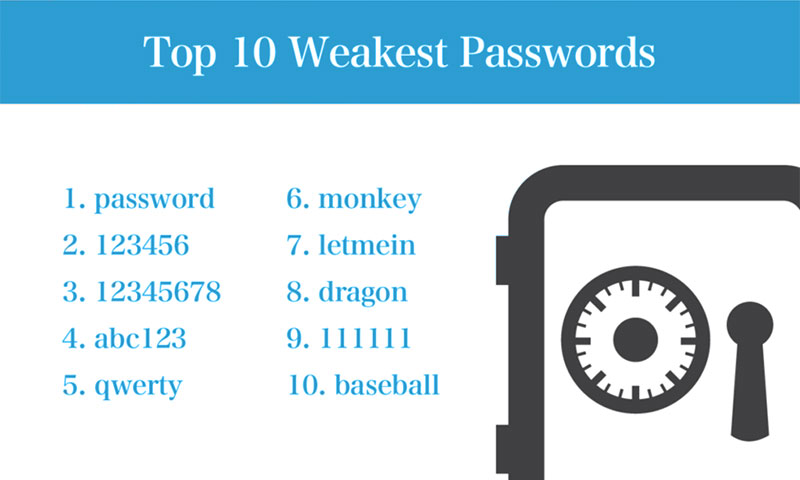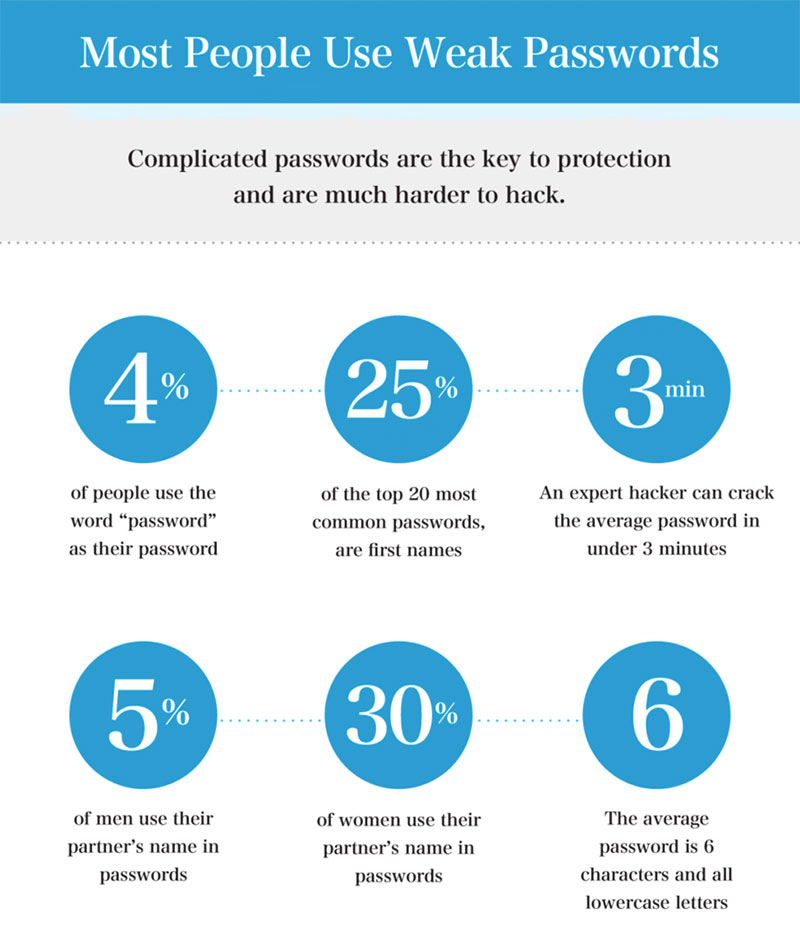 On the occasion of the World Day of Codes on May 5, we recall all the ways we can generate high-power and security codes to reduce the success of the malicious actions that take place every day. It is often observed that the use of complex codes is neglected due to convenience.
On the occasion of the World Day of Codes on May 5, we recall all the ways we can generate high-power and security codes to reduce the success of the malicious actions that take place every day. It is often observed that the use of complex codes is neglected due to convenience.In this way, while there are some simple steps that can be followed, the vulnerability of the systems increases, for the benefit of all those who act in the malicious retrieval of information.
 What to avoid:
What to avoid:Your password should not contain public personal information, e.g. birthdays, children's names, anniversaries.
By using complete words or phrases, the power of your password is reduced.
Registering your password in a notebook should be avoided and when it can not be avoided, prefer to record it with other characters that only you know are not part of the code you are using.
Try not to use the same password for entering different accounts.
You are entering your personal accounts only from the computers you use and avoiding computers that are connected to public networks. Otherwise, you may store unsolicited information on other computers or simply forget to log off your account.
 What to do:
What to do:A password should be at least 8 characters long to be considered strong.
Use all available character types: Headline letters, lowercase letters, numbers and special characters.
Use a password to remember. It does not benefit from using a strong password that you will not be able to memorize.
Use a method to reset your password. Using a mobile phone to reset your password is a fairly safe method, so choose where this feature is offered.
Try changing your password twice a year.
For an extra level of security, do not forget, when given the opportunity, to:
Choose one of the available security questions and set the answer of your choice, which you should know only yourself.
Use the two-factor authentication. This will ensure that your account is not violated.
Log in to your account and feel safer.


